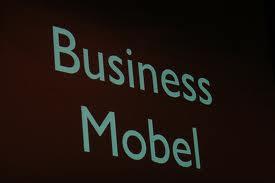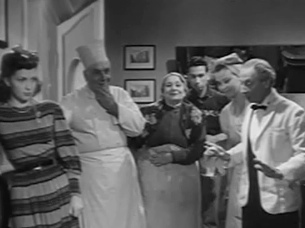First an apology. In my first recent post about the Colorado Symphony, I mangled the link to my January post on that orchestra. Which you can find here. And now a clarification, in case it's needed. I didn't slam the Colorado Symphony, in my last post, because they're high on any agenda I might have. They aren't. But if you read what I posted last January, you'll see that I was hopeful about the new direction they'd announced, both because they boldly stated what their problems were, and because they proposed some major changes. I hoped … [Read more...]
Archives for 2012
Colorado problem
Following up on my last post, about Colorado Symphony's business plan… Yes, it's bold about the problem they're having. They're not taking in enough money. And that's because interest in classical music has fallen off, so that now the number of people who care about them is too small to give them the support they need. But now comes the part I'm surprised about. One big part of their plan to make themselves more viable is to get more connected to their community. And they want to do that by giving more diverse performances, which means … [Read more...]
Colorado Bold
A while ago I blogged about the Colorado Symphony, and its bold plan to remake itself. It had to remake itself because it was running out of money, and to describe the bold plan, the Denver Post used these words: [T]he CSO plans to undergo nothing less than a complete culture change that rejects music-making offered with "little thought as to whether it truly was of interest and relevancy to a large part of the community" and plays up relaxed, consumer-friendly performances that meet audiences on their own terms and in their own towns. I … [Read more...]
Frightened by storms
In my post on the U of Maryland symphonic performance I went to, I talked about the Pastoral Symphony, and how one problem I'd long had with the final movement came from its narrative. There's been storm. Countryfolk were frightened. Now they're thankful -- for 10 minutes of music -- because the storm has passed. How can a storm be so frightening? We might say (as the program notes for the Maryland concert did) that the movement really deals with something larger, rejoicing after any great trouble has passed. And the structure of the … [Read more...]
The old days
There's a moment from a 1950 Italian film -- Mad About Opera -- that's a touching tribute to how popular, how deeply loved classical music used to be. Or, if you like, how deeply loved opera was in Italian communities, but that's just a subset of the overall popularity. And certainly isn't something you'd see now, even in Italy. The scene is London, in a restaurant owned by an Italian. A lively (to say the least) argument is going on about a plan a young guy has. And then someone plays a Gigli record, and conversation stops. A young woman … [Read more...]
Wonderful musicmaking at UMD
Sometimes exasperated commenters say they can't believe I love classical music. This post -- about some fine student musicmaking and the delights of Beethoven -- should be an antidote. My last post was about terrific things at the University of Maryland, creative hard work done to attract a younger, livelier audience to concerts by the student orchestra. It's worth repeating what they did. The strategy, as I'd summarize it -- find the places where orchestral players most naturally meet other students. In their dorms (fraternities and … [Read more...]
Maryland adventure
Here's another example of classical music entrepreneurship. Plus some work I did, that now is showing some results. I was delighted when I went to hear the University of Maryland Symphony Orchestra on Friday, and found a larger, younger, and more lively audience than I'd ever seen at these concerts. The concert also was dramatically good (speaking musically, now), way beyond what anyone would normally expect of a student orchestra. More on that in another post And of course I was curious to know how this audience had gotten there. When I … [Read more...]
Respecting the culture
I already said much of what follows, in my post about Alec Baldwin's favorite records. But it needs saying again. It's crucial for classical music's future. Remember the commandment: Respect the culture we find outside classical music. So let's take another look at what that culture is. I was driving the other day, and listening to an NPR show about American vice-presidents, a subject it's easy to have fun with. So when the host mentioned George Clinton -- veep during Jefferson's second term -- all at once we heard music from George Clinton … [Read more...]
More good news
This from Britain, where there seems to be an explosion of younger people going to hear classical music, and many of them especially like contemporary -- even avant-garde -- classical music I've been aware of this for some time -- note my blog posts after my visit to London last year, about the Roundhouse, a pop venue, where classical concerts draw a big pop-oriented audience, and about the large crowds for a festival of music by Steve Reich and younger composers identified as his successors. Produced, I might add, by the London … [Read more...]
Alec Baldwin shows us the way
I'm going to be posting a lot about the future -- or, rather, about how to make classical music ready for the future. And, especially, how to make classical music institutions ready. A lot of what we need to think about involves the culture around us -- the culture into which classical music needs to expand, if we're going to find more audience. I know this idea isn't always welcome, but think about it. If we want to attract people who don't now listen to classical music, who are they? Clearly they're people who live in our … [Read more...]
Thinking bigger — Grammy post followup
I'm all for growing our niche audiences incrementally, using the Grammy awards for whatever they can get us. But we shouldn't be satisfied with incremental growth. We're ready to explode. Let's go for it! I'm surprised -- but happy -- about how much comment my Grammy post got, the post in which I said the classical Grammys didn't matter much. And I got a lot of pushback. Yes, the Grammys matter. They're recognition for recordings that might not otherwise get it (or at least not so prominently). The Grammys help with promotion -- if … [Read more...]
Why the classical Grammys don’t matter
Well, maybe they give their winners bragging rights, or a small -- tiny? -- commercial boost. But in any larger musical, cultural, or commercial sense they don't matter at all. Not because awards shows might be silly, or because winning an award might be no guarantee of artistic strength, or because (as some people might think) classical music itself might not matter. No, the classical Grammys don't matter because hardly anyone -- including classical music fans -- hears most of the recordings that are nominated, so there's no context … [Read more...]
Good news from Toronto
I talk a lot about problems with classical music, and maybe don't say enough that what I really care about is classical music's rebirth. Which -- knock on any wood-like substance available -- seems to be happening. For instance: The Toronto Symphony says it has an amazingly young audience. More than one-third of it is younger than 35! I read this some months ago in a story that appeared late in June, in the Culture Monster page on the Los Angeles Times website. And then was surprised to see that the story -- in journalist-speak -- … [Read more...]
Philharmonic clarification
Turns out that the empty branding of Alan Gilbert -- as a New Yorker, when nothing much about him or the New York Philharmonic says "New York" -- wasn't the Philharmonic's doing. It comes from their chief corporate sponsor, Credit Suisse. I'm reminded of what can happen when, let's say, a pop or classical star has her own publicist, but also works with record labels or performing institutions that have publicists of their own. The publicists don't always agree on what should be done. (And don't get me started on the conductor whose parents … [Read more...]
Empty branding
The New York Philharmonic supports WNYC, New York's public radio station. And so they get little quasi-commercials sprinkled into the station's shows. In which they tout Alan Gilbert as the first Philharmonic music director born and bred in New York. And so now I must tell my friends at the Philharmonic that this is pointless. If Alan Gilbert comes from New York, what difference does that make? Just about none, I'd think. Because it's not as if Alan -- in his work as music director, in his programming, for instance, or for that matter in … [Read more...]















